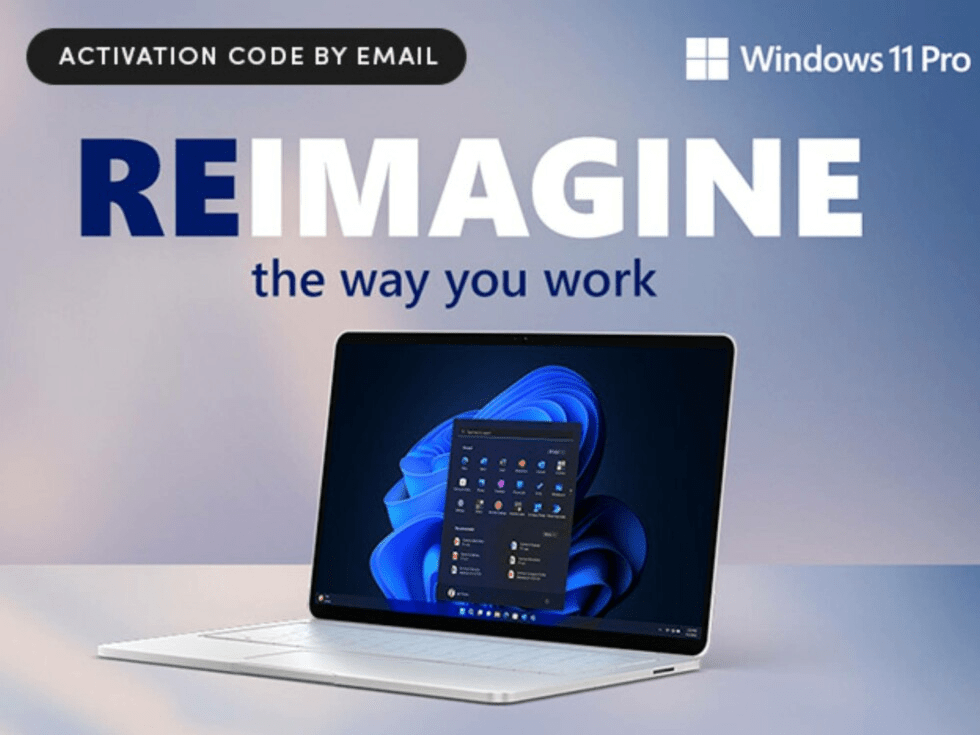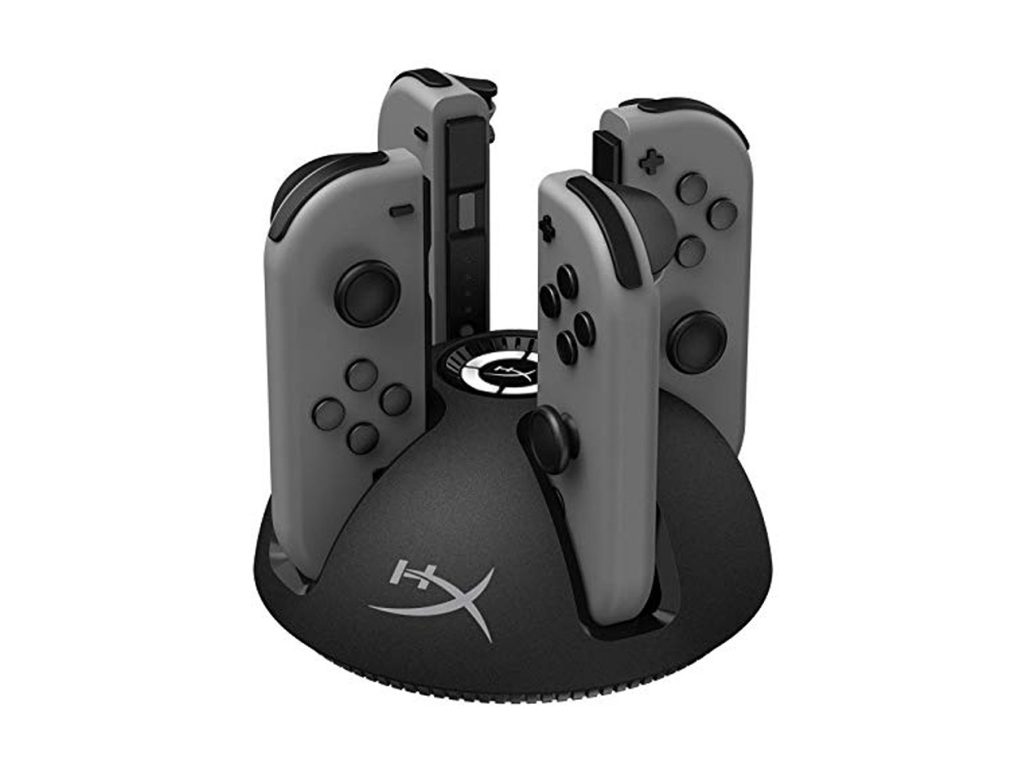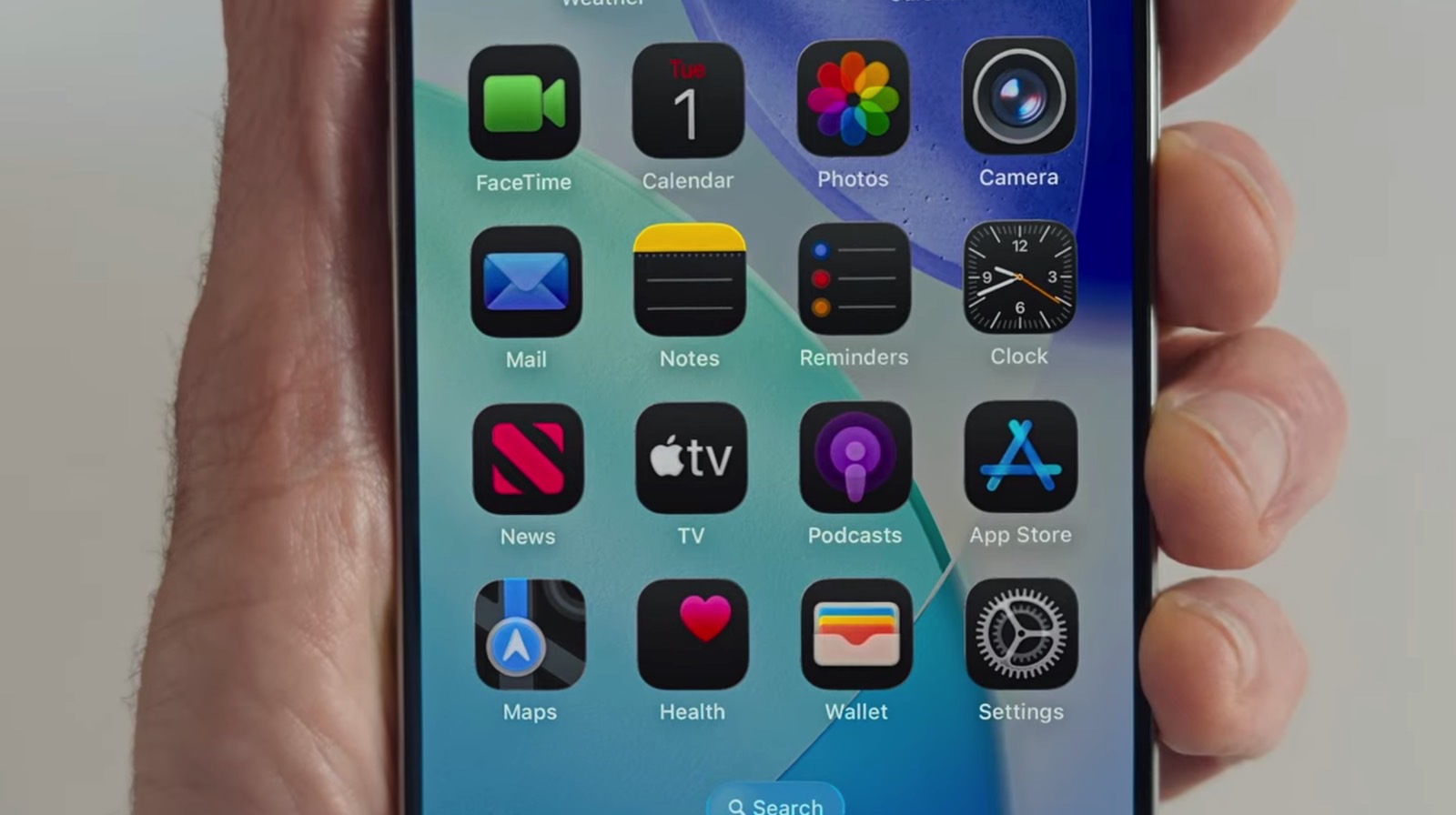Now Reading: Hisense U7QG review: A gaming champion at a great price
-
01
Hisense U7QG review: A gaming champion at a great price
Hisense U7QG review: A gaming champion at a great price
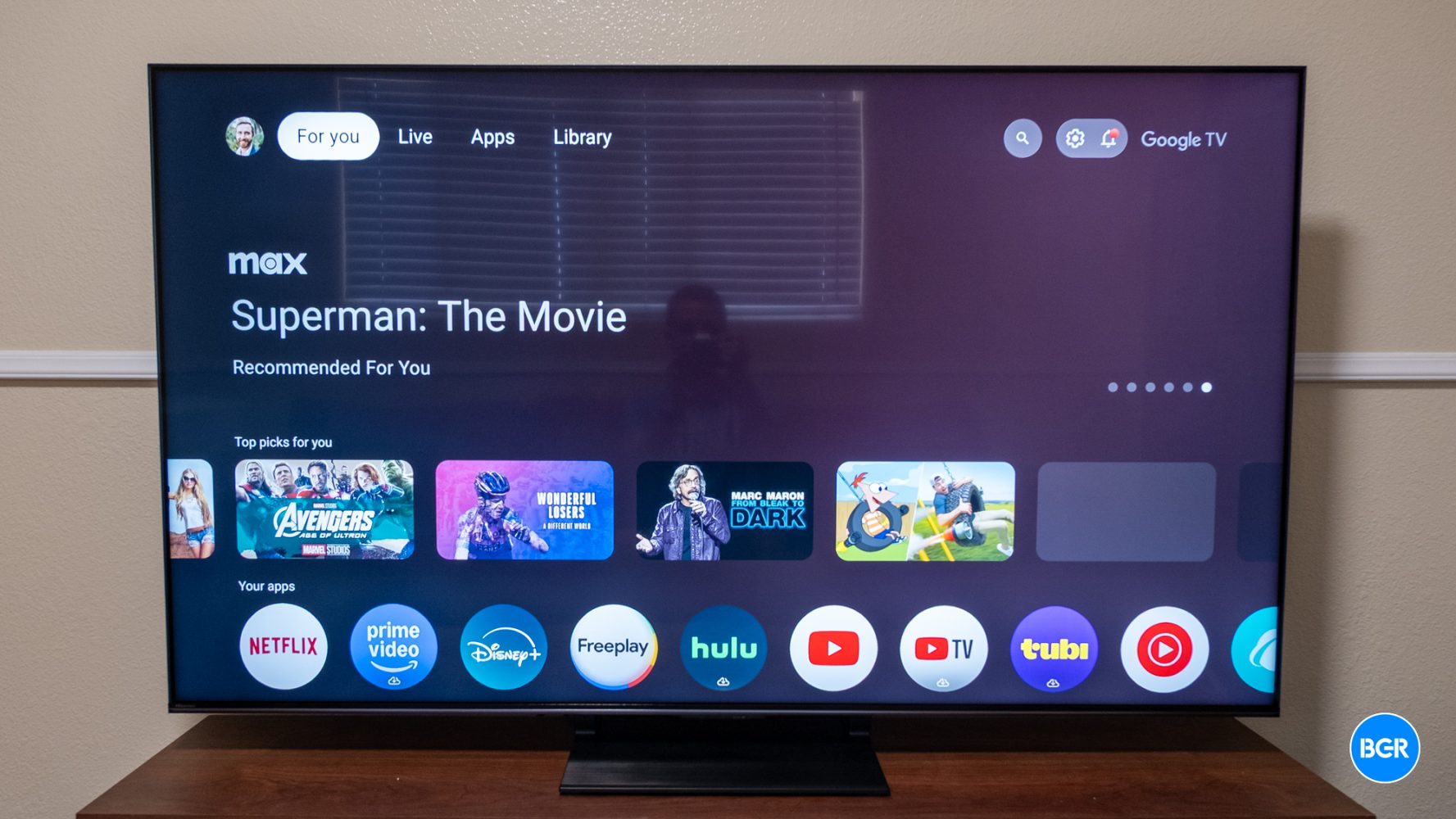
Hisense U7QG Review
Rating: 4 Stars
The Hisense U7QG once again dazzles in its price range, with stunning image quality and great gaming features.
Rating: 4 Stars
Pros
- Super bright
- Great gaming features
- Four HDMI 2.1 ports
- Inexpensive
- Deep black levels
Cons
- Off-angle viewing isnât the best
| Buy From | List Price | Sale Price | |
|---|---|---|---|
| $899.99 | $697.99 | See It |
The Hisense U8 series has long been designed to push the boundaries of premium mid-range TV quality. While those TVs get a lot of attention, itâs perhaps the lower-priced models, like the U7 series, that truly define what great value really is. The Hisense U7QG continues that legacy, offering many of the same features as the U8QG, but at a lower price point.
How many compromises does the U7QG make to hit that lower price point, and should you keep saving and go for the U8QG instead? Iâve been testing the Hisense U7QG to find out.
Hisense U7QG specs
| Display size | 55, 65, 75, 85, 100 inches |
| Resolution | 3840 x 2160 |
| Display type | Mini-LED ULED |
| Refresh rate | 165Hz |
| Ports | 4 x HDMI 2.1, USB 3.0, USB 2.0, optical, ethernet, aux |
| HDR support | HLG, HDR10+, Dolby Vision |
| Software | Google TV |
| Price | $899.99 â $3,499.99 |
Hisense U7QG review: Design
There isnât a whole lot to say about the design of the Hisense U7QG, but that doesnât mean that itâs an ugly TV. It generally looks fine with relatively slim bezels around the screen and a stand in the center that I quite like the look of.
The stand actually covers two legs that you could use instead, but I prefer the look of a stand, even if itâs not actually a stand that distributes weight across the whole TV.
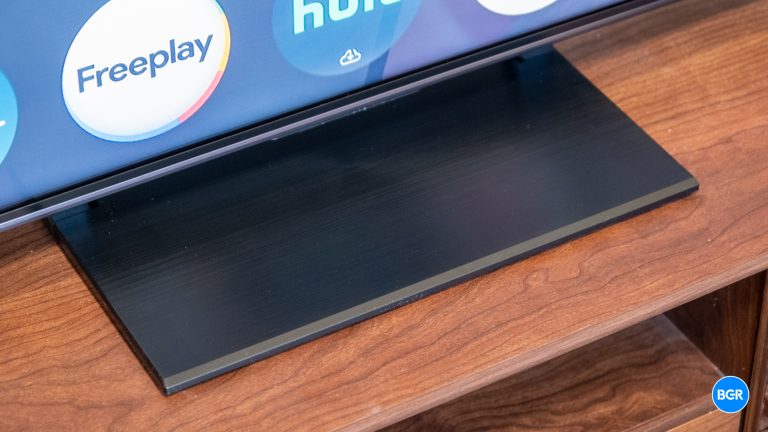
That said, the U7QG isnât necessarily the most premium-looking TV out there. The likes of Samsung and LG are building much thinner and much more premium-looking TVs. You wouldnât necessarily expect Hisense to offer a similar build and design at this price point, but I do hope that Mini LED TVs like this start to get thinner in the near future. For now, they remain a little thicker given the amount of heat that Mini LED technology generates, but maybe technological developments will change that soon.
The TV has its power input on the right side and other ports on the left side as you look at the screen. Setting it up in your home is relatively simple, though itâs worth having someone help you lift the TV when you do so.
Remote
The Hisense U7QGâs remote is more of the same from Hisense. Iâm getting a little bored of the remote design. I donât mind the brushed metal look, even if itâs actually made from plastic, but itâs kind of big. I prefer the remote that TCL is currently shipping with its many LED models, even if that remote embraces the plastic look more. Itâs slimmer and smaller, and I appreciate that.
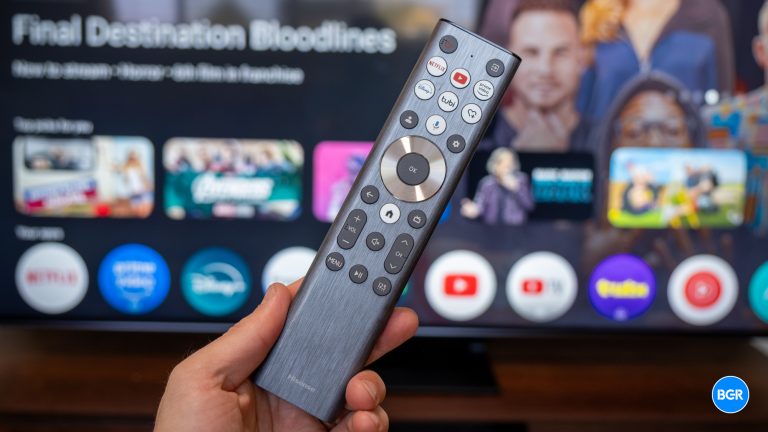
That said, the remote is still easy to use and offers all of the basic controls you would expect. Youâll get software controls along with quick access buttons for certain streaming services. I donât think anyone will have trouble figuring out how to use it.
Ports
The Hisense U7QG has something that the U8QG doesnât: four HDMI ports. For some reason, Hisense chose to give the U8QG three HDMI ports instead of four, but the U7 model keeps all four, and theyâre all HDMI 2.1 ports.
The TV also has a USB 3.0 and USB 2.0 port, as well as other expected ports like an optical port, Ethernet port, and so on.
Hisense U7QG review: Software and features
As expected, the Hisense U7QG ships with Google TV, the same operating system that it has used on most of its U-series TVs over the years. Google TV is generally easy to use and works well. It supports all of the streaming services you want it to, and has a range of additional features for those plugged into the Google ecosystem, like solid Google Home support and Google Cast support.
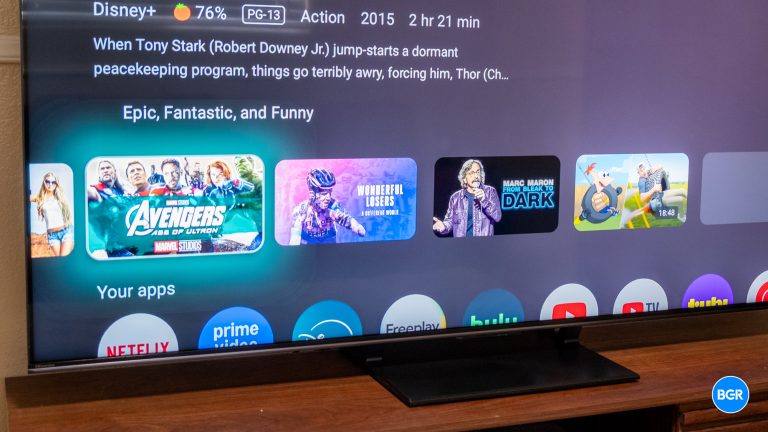
The TV also supports other ecosystems, too. For example, it can integrate with Apple HomeKit and supports AirPlay, so Apple users who donât have an Apple TV can share their content and control the TV within their preferred apps.
Hisense U7QG review: Performance
On paper, thereâs a lot about the Hisense U8QG thatâs very similar to the U7QG. It has a 165Hz refresh rate, Mini-LED backlighting, and so on. But there are still some differences. For example, The U8QG has a higher peak brightness, higher contrast ratio, and can display a wider array of colors.
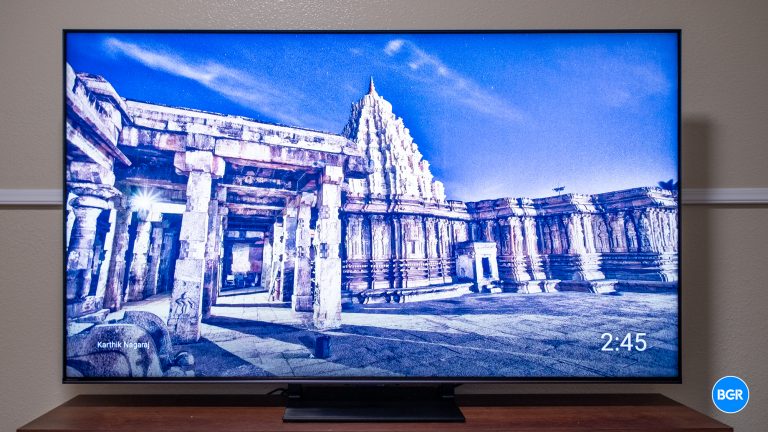
That, however, doesnât mean the U7QG looks bad. The U8QG has an absolutely huge peak brightness, and while the U7QG doesnât quite reach that higher bar, itâs still very bright. That was true in both SDR and HDR, with HDR content offering impressive highlights combined with decently deep black levels. I was also impressed with how little blooming there was. Sure, there was some, but not enough to be distracting, and most wonât notice it at all.
The U7QG also represents a pretty big update for gamers. Notably, it has a 165Hz refresh rate, which is pretty great for a TV in this price range. It also supports variable refresh rate, or VRR, and AMD FreeSync Premium Pro. And all four of the HDMI ports support HDMI 2.1, so they can all make use of modern gaming console features. Indeed, I found the experience of gaming on the TV to be excellent. Everything looked and felt smooth, and the brightness helped make visuals look stunning.

I did find that the TV wasnât necessarily incredible at handling direct reflections, which means that if you have a light source that reflects off the TV, it might bug you, especially with darker scenes. This is true of any TV with a glossy display, but given the fact that many manufacturers have been moving towards non-glossy screen finishes in recent years, itâs still worth noting.
I also found that off-axis viewing was only fine. At wider viewing angles, the image did start to degrade a little, so if youâre looking for a TV for a very wide living room, itâs perhaps not the best choice out there. That said, the viewing angle wasnât completely narrow, and in most living room setups, itâll do just fine.
Hisense U7QG review: Audio
For its latest generation of TVs, Hisense has put a lot of work into improving the audio experience, and the U7QG has a 2.1.2 speaker system built right into it, which includes a subwoofer and two speakers that fire up out of the top of the frame to add height. I found that the changes did make a difference. The built-in audio system is better than the one built into the U7N from last year. Thereâs a lot more bass, helping make things sound a little more balanced.
Thatâs not to say that the speakers sound amazing, though. Bass still isnât incredible, and the height channels didnât necessarily add tons of immersion in my experience. If you have room in the budget for even a cheaper soundbar, youâll likely find that it delivers a better audio experience than the speakers built into the Hisense U7QG. Thatâs especially true if that soundbar comes with a subwoofer.
Conclusions
Unsurprisingly, the Hisense U7QG is a killer TV at this price point. It gets incredibly bright, offers a range of great gaming features, and looks stunning in any day-to-day viewing scenario. If youâre looking for the best TV you can find at this price, the Hisense U7QG is the way to go.
The competition
The Hisense U7QG has quite a bit of competition. For starters, thereâs the TCL QM7K, which is also an excellent TV with great image quality. However, the Hisense U7QG has a higher peak brightness, and for most, that will translate to better image quality, especially in HDR.
You might also be wondering if you should get the U7QG or U8QG. If you can afford it, the U8QG is a better TV with a higher peak brightness, more accurate color reproduction, and more.
Should I buy the Hisense U7QG?
Yes. You canât do better at this price.












